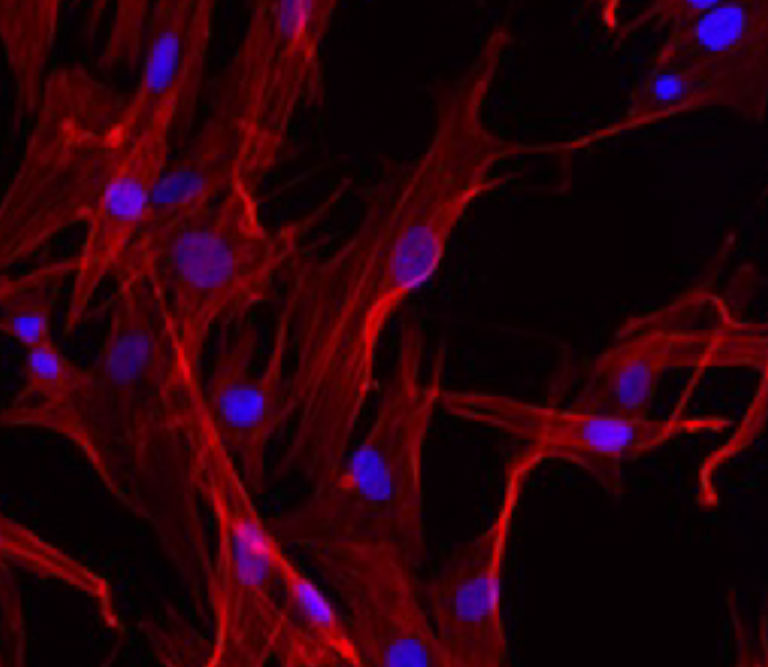Fibroblasts are the principal cellular components of the dermis, the connective tissue layer beneath the epidermidis. These cells play a crucial role in maintaining skin structure and integrity by producing and remodeling extracellular matrix, which provides mechanical support and elasticity to the skin.
In particular, fibroblasts are responsible for the synthesis of key structural proteins such as collagen, elastin and fibronectin. These components are essential to the skin’s firmness, suppleness and repair capacity. In response to injury or stress, they become activated, migrating to the damaged area and producing growth factors (TGFb, VEGF) to promote cell proliferation and tissue regeneration. In addition, fibroblasts interact closely with other cells, and in particular with keratinocytes and immune cells, to regulate inflammation and preserve homeostasis. With age, their activity diminishes, leading to a loss of tone and the appearance of wrinkles.


